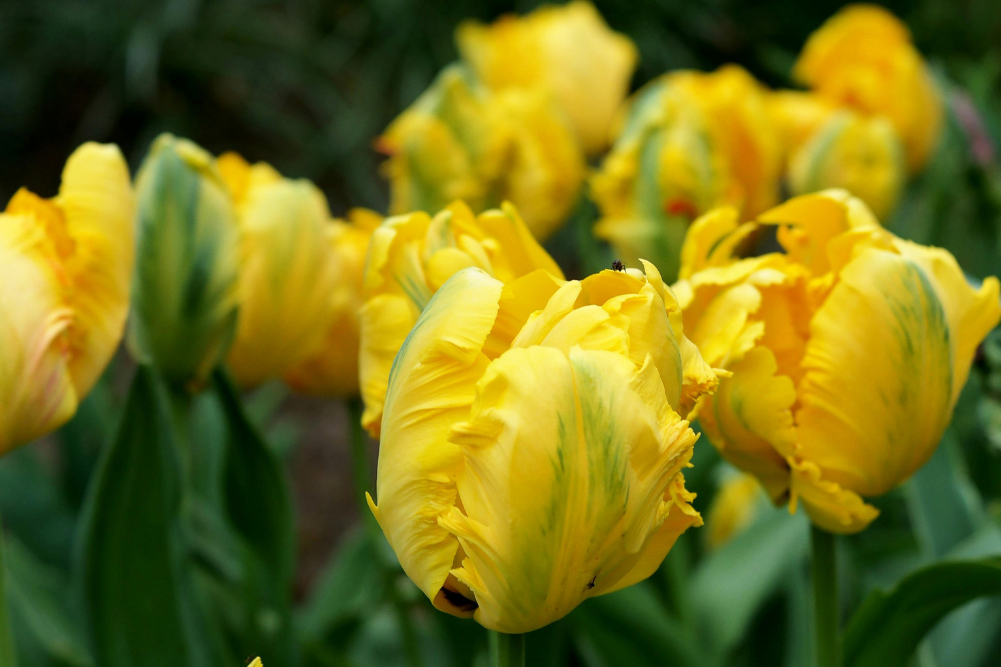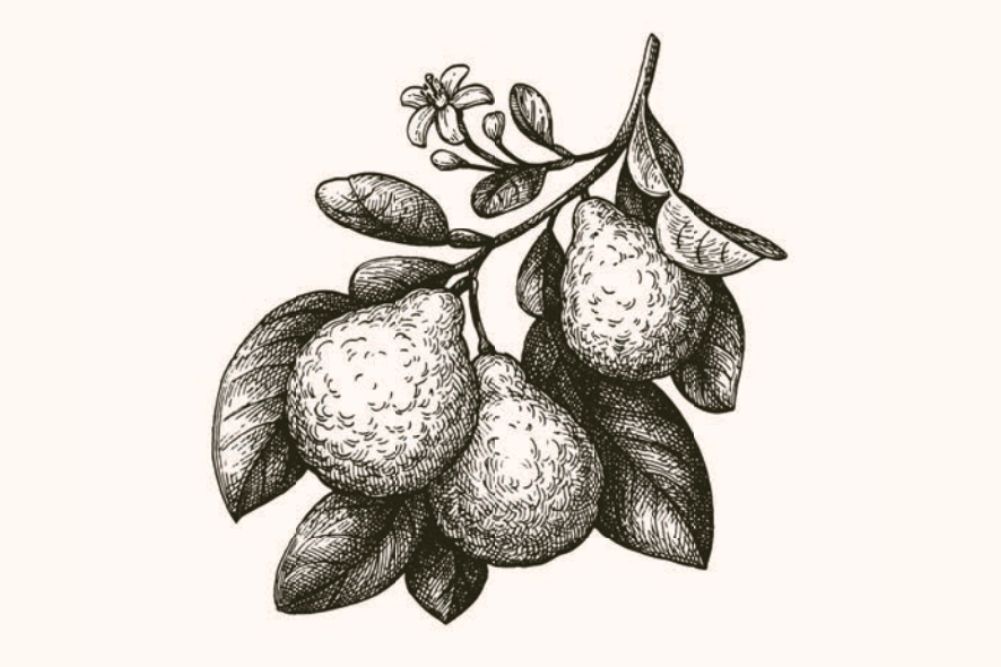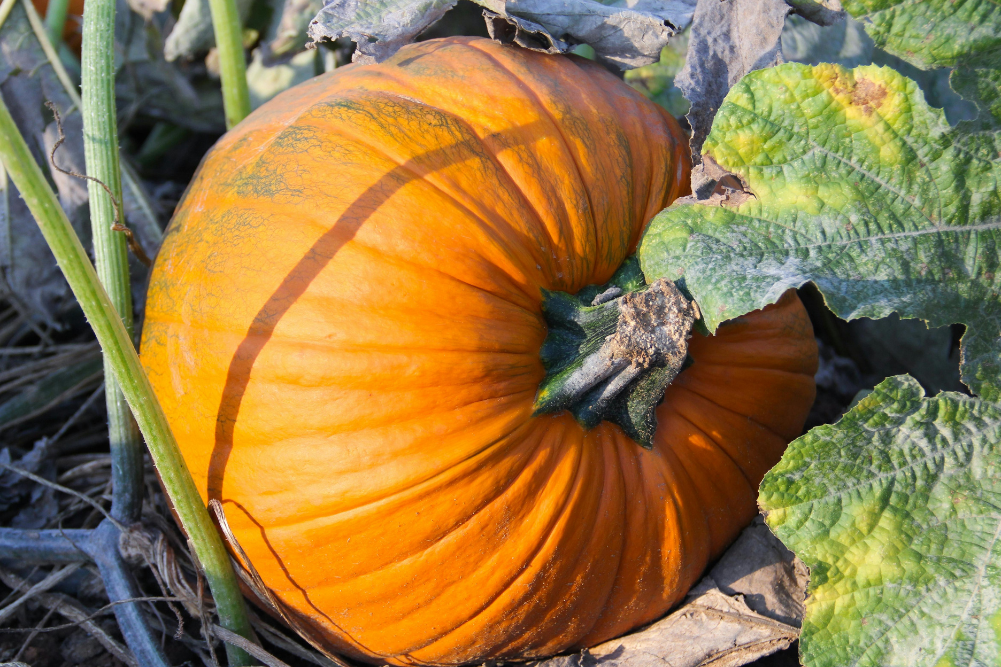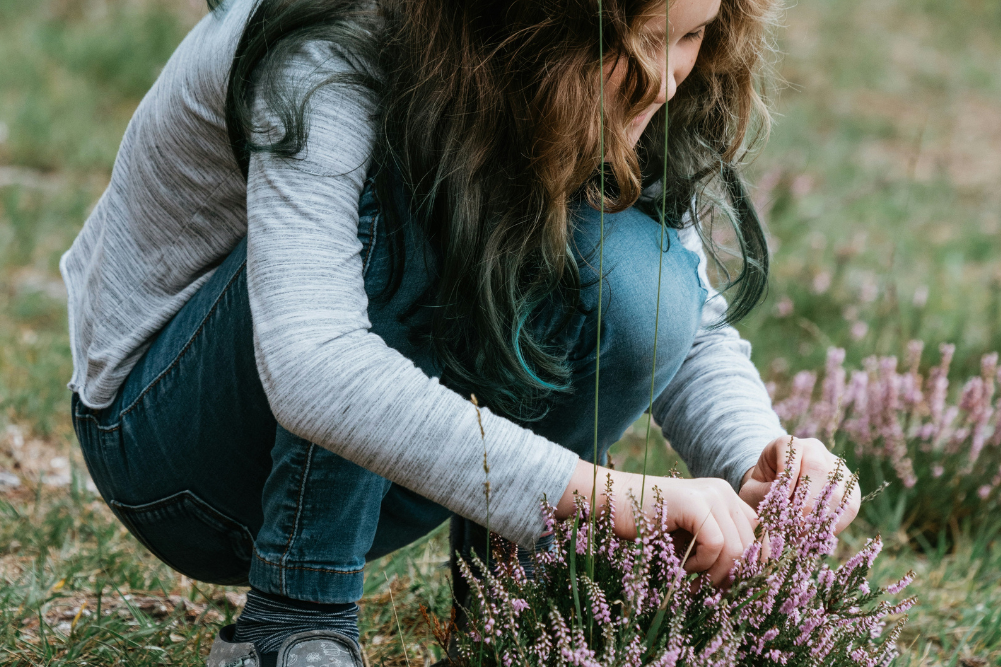Can our feathered friends help us live more sustainably?
In the world of feathers, while blokes often just strut about, it’s the girls who do most of the real work. They lay the eggs, brood the clutches, raise the chicks and, equipped with nothing more toxic than a sharp beak and a good pair of legs, take on the weeds, the bugs, the grubs and the slugs — all in a natural day’s work.
These days, many people living more sustainably use hens, ducks, geese and even turkeys as the organic alternative to chemical weed and pest control. It’s just a matter of choosing the right girl for the job.
Cultivating chooks
Chooks are great cultivators. Their scratching turns over the earth; they redistribute mulch, aerate the soil and fertilise the ground they walk on. In the process, they devour virtually every insect and almost anything green they come across.
Chooks work best when they’re well managed. For example, it’s not a good idea to let them into a garden or field of newly planted seedlings. They do their best work if you free-range them in the vegie patch between crops. At other times, let them free-range in the farmyard or the mature garden. Just keep them away from new plants or freshly mulched trees and shrubs.
They’ll eat almost any herbs, grains, grasses and groundcovers. Chickweed, wandering jew, shepherd’s purse, sow thistle and comfrey are relished. So are fruits such as elderberry, mulberry, mango, persimmon, pawpaw, vines such as grape, passionfruit, peas, beans, melons and cucumber, and vegies such as silverbeet, lettuce, peas, chard, cabbage and sunflower.
They love herbs such as nettles and garlic, which also have a medicinal and tonic effect. They don’t care for onions and citrus peel, though. And keep them away from rhubarb — it’s poisonous.
Chooks are great in orchards and backyards with fruit trees. They help reduce coddling moth by scratching up and eating the pupae, which over-winter in the soil. They love fallen fruit, grubs and all, helping to control the fruit fly population. They also eat grass and cattle ticks and they fertilise the trees.
Free-range chooks should be locked up at night in a weather-proof, predator-proof shed. It needn’t be big, but it does need good ventilation. Each hen needs 25cm of perch 60cm off the floor, which should be covered with wood shavings or straw and changed regularly (it makes great compost!). Nest boxes 35cm square, lined with straw and roomy but dark and quiet, should be in the shed. One box for every three girls (six hens will supply a family of four with eggs for themselves and enough for friends).
Chooks like routine and free-rangers quickly learn to return to the shed for the night — especially if they’re fed in the evening. Some people attach a run to the shed to confine the chooks at times when free-ranging is unsuitable. In the run, they should be given greens, scraps or mash in the morning and grains and/or pellets at night.
If you want a strictly chemical-free farm or garden, check that the pellets you buy don’t include the hormones or antibiotics that some commercial feeds contain.
Hens will happily lay eggs without a rooster about. You don’t need a rooster unless you want chicks, though some people say a rooster keeps hens from squabbling. Only one cock o’ the walk at a time, though. Otherwise they fight.
To do her best work, a hen needs about 200 grams of grain each day — wheat, maize, sunflower or pellets. Whether she’s free-ranging or in a run, make sure she has access to plenty of cool, fresh water. And grit — she needs it daily. Specially formulated large-size grit is a good source of calcium and available at good produce stores and pet shops.
Keep her happy, and she’ll repay you with a good day’s work, every day.
Dabbling with ducks
Bill Mollison (the permaculture guru) is quoted as saying: “You don’t have a snail problem; you have a duck deficiency.†A duck’s propensity for demolishing snails and slugs is legendary. Many people keep them mainly for that purpose. (At the same time, duck eggs are delicious and so is duck meat from the right breed.)
Ducks are grazers and foragers. Unlike scratching hens, they don’t scatter mulch or uproot delicate plants. However, they will sometimes graze on small vegetable seedlings or trample them when hunting for insects and snails. They tend not to eat mature vegies, so it’s safer to let them in once the crop is well underway.
Ducks have other advantages. They’re tougher than chooks in damp or cold conditions. They don’t need elaborate housing (for example, no perches). They thrive on natural foods and clean up waterways of green algae and other water weeds. They also eat water snails, host of the liver fluke parasite, which infests livestock. Except for Muscovies (whose wings can be clipped), domestic ducks don’t fly, so you won’t need high fences.
One drake and two or three ducks is a good combo for a backyard. Twenty or so ducks in a one-acre orchard will clean up the weeds as well as the snails, slugs and insects.
Ducks must have fresh, clean, cool water daily. A pond isn’t essential, although they’ll appreciate one if provided. A large tub or bath will do. They need water, not just for drinking, but deep enough to completely dunk their heads to clean their nasal passages of food and dirt. A dunking tub and a small pool to swim in (minimum 200mm deep and 1m wide) turn an ordinary yard into a duck resort. Make sure the pool has sloping sides for an easy exit — especially if you have ducklings.
It’s important to keep the water clean. Ducks dabble their food in the water and their beaks in the mud, and wash them in the water. They will soon turn a small water container putrid and, if left, it will make them sick. All containers, including swimming tubs, should be cleaned and refilled daily. Ducks can turn the area around their water into a quagmire (their droppings are also quite watery), so the tub or pond should be surrounded with gravel, sand, paving or flagstones. Alternatively, in a large garden or orchard you could relocate the water tub under a different tree each day.
Ducks also need a dry, ventilated, predator-proof shed to sleep in. Allow one square metre of floor space to every five ducks. They sleep on the floor, which should be covered with 100mm of wood shavings or thick straw, changed regularly. Place nest boxes, a little larger than those for chooks, in the shed — ducks usually lay early in the morning. A duck needs 150g of food a day, so supplement her free-range diet with mash in the morning and grains before bed.
Muscovy ducks are one of the most popular breeds. Strictly speaking a ducky kind of goose originating in Central America, Muscovies are good layers and great mothers — and very good to eat. They are able to fly and sometimes may need the flight feathers on one wing clipped. Other popular breeds are Khaki Campbell, Indian Runner and Pekin ducks — all good layers and workers, if not the best parents.
Don’t buy old pet ducks and be wary of ducks people want to get rid of (egg laying and fertility go off after 3–5 years). Buy ducklings over three weeks old to avoid losing them to cold. The better pet shops, or breeders’ ads in poultry magazines, are the best source of good working ducks.
The grazing goose
Geese grow faster, live longer and are hardier than other domestic poultry. They are cheap to feed as they live on grass. A kind of feathered lawnmower, geese love short, succulent grasses, lucerne, clover and other pasture weeds. Occasionally, in summer, you may need to mow grass that gets too rampant for them. Mostly, though, they’ll do your mowing for you, fertilising as they go.
Geese are very faithful. Once they have mated, after a settling-in process, the geese and their gander will stay together for life. One gander to three or four geese is a good ratio.
Emden and Toulouse are the two most popular heavy breeds. Other lighter breeds available are Chinese, Roman and Sebastopol. Geese prefer to mate on water if available, and fertility in the heavier breeds is better if they have a swimming pond.
However, many people run them in orchards and paddocks without swimming water. They need shade when it’s hot, clean, fresh drinking water at all times and good insoluble grit daily. They graze happily and manure fields and trees without disturbing the soil or scattering mulch. They are good foragers and, given enough space, need little supplementary feeding.
Lock them up in a simple shed overnight to protect them from foxes and dogs. Wood shavings on the floor, so long as they’re changed regularly, will keep conditions dry. Large nest boxes
(one for every three geese) are placed in the shed, or the yard if they’re confined to a large run. Geese usually lay 12–15 eggs and then go broody. Food for mother geese and goslings can be supplemented with laying pellets formulated for chooks.
Geese are also renowned for being good “watch dogsâ€. No stranger will get within coo-ee of your yard or garden without the geese letting you know. They can be very noisy.
Though they love grass and pasture weeds, geese won’t eat a lot of other plants, so they provide natural weed control in crops such as strawberries, sugar beet, asparagus, corn, cotton, sugar cane, ornamental plants and flowers, as well as grapevines and fruit trees.
Geese are not as readily available as chooks or ducks. Breeders are generally the best source of quality birds and often advertise in poultry or farming publications.
A tale of turkeys
Some people find turkeys the easiest to get on with of all domestic poultry. They are big birds, so they need space, but they will happily clean up insects and weeds in a large yard or orchard. Turkeys peck rather than scratch, so mulch and shallow-rooted plants are safe.
For an example of how turkeys are being used in organic, sustainable ways, we spoke to Jane Wilson, joint proprietor of the Lowe Family Wine Company at her Tinja property near Mudgee in NSW. In their organic 30-acre vineyard, chemicals are naturally out of the question, so Jane is trying turkeys for summer weed control around the grapevines. She has a particular problem with saffron thistles and turkeys not only demolish the thistles but eat the seeds as well. They also clean up other summer weeds and insects, but conveniently leave the vine leaves and grapes alone.
Turkeys are herdable and the flock is moved around the vineyard, intensively grazing small sections at a time. They are contained by moveable electric fencing. In the process, they help manure the vines.
Pair bonding is strong in turkeys and you can keep several pairs together without the toms (male turkeys) getting aggressive. Jane is starting with about 30 poults (juvenile turkeys) and aims for a final breeding flock of up to 40 birds. They are housed at night in large wooden predator-proof sheds.
Incidentally, It’s best not to free-range turkeys with chooks. A common parasite called blackhead is harmless to chooks but bad for turkeys, especially young poults.
Turkeys are ready to mate at around eight months and are strongly seasonal breeders in spring. At Tinja, Jane is trialling both natural brooding and artificial incubation. In the future, surplus birds will go to the local organic poultry processor.
Finding suitable birds can be a problem. Commercial turkeys are bred for meat with huge breasts, which destroys their balance and weakens their legs. They’re too fat and unbalanced to walk properly, so they cannot free-range successfully. They even find it difficult to mate without help.
Heritage breeds are the free-range answer because they retain all the natural attributes of the original species. Jane chose the heritage variety Bourbon Red, which came from Victoria.
Even a single pair of turkeys will add colour and sound to a farmyard or large garden and work at keeping weeds and insects down. Keep them safe at night and let them out each morning. They’ll happily live on formulated chook pellets, plus the greens they get free-ranging, which give them the vitamin A they need. They also need plenty of fresh water daily.
Whatever the job you want her to do, show any one of these hard-working girls a weedy, overgrown yard full of insects, slugs, snails, nettles, thistles and other undesirables, and she’ll think she’s gone to poultry heaven. And she’ll thank you by cleaning it up naturally — without a chemical or a poison in sight.
Noel L’Orange is a writer and poet who runs a chook resort on the NSW North Coast.







